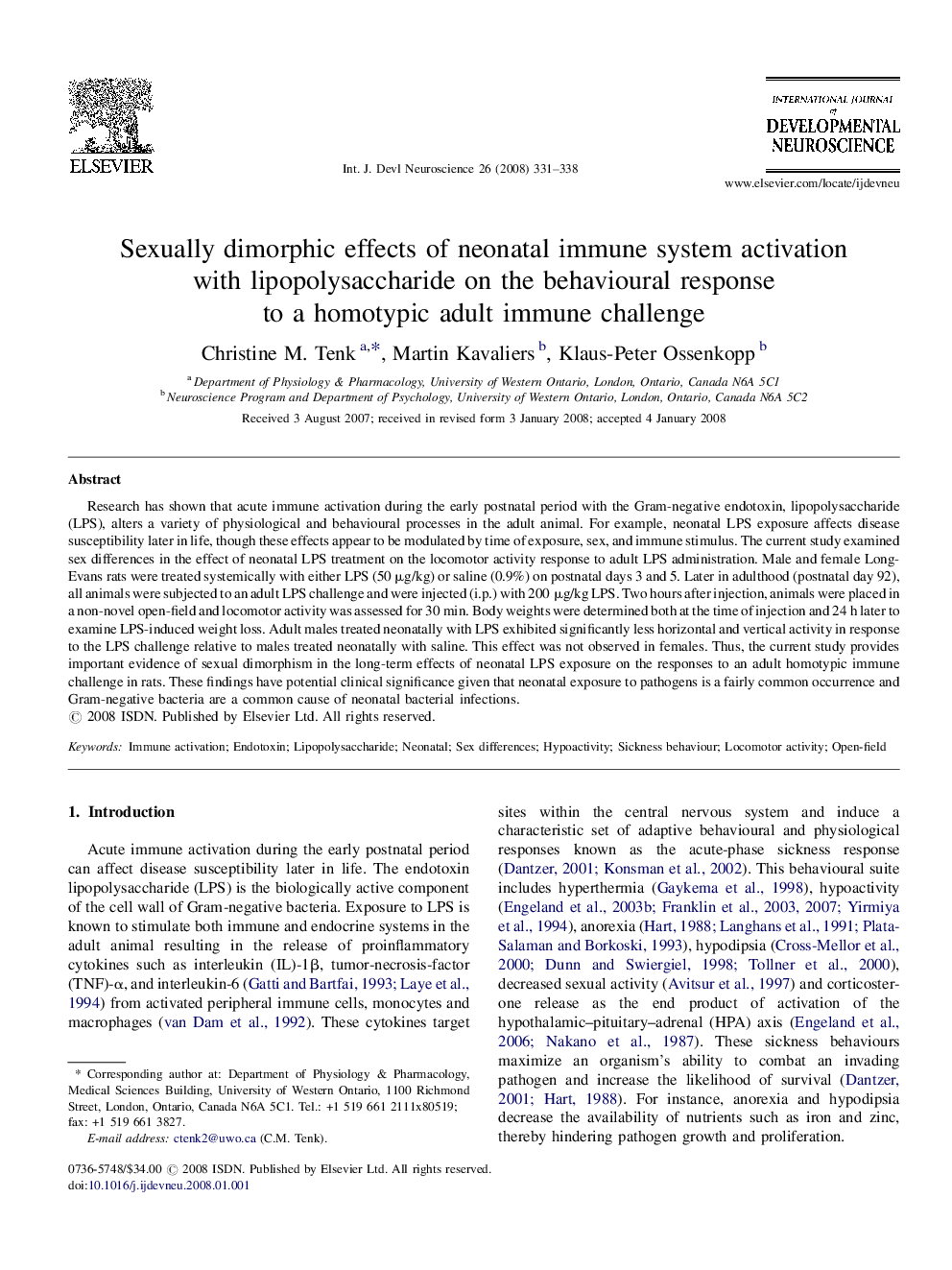| Article ID | Journal | Published Year | Pages | File Type |
|---|---|---|---|---|
| 2787048 | International Journal of Developmental Neuroscience | 2008 | 8 Pages |
Research has shown that acute immune activation during the early postnatal period with the Gram-negative endotoxin, lipopolysaccharide (LPS), alters a variety of physiological and behavioural processes in the adult animal. For example, neonatal LPS exposure affects disease susceptibility later in life, though these effects appear to be modulated by time of exposure, sex, and immune stimulus. The current study examined sex differences in the effect of neonatal LPS treatment on the locomotor activity response to adult LPS administration. Male and female Long-Evans rats were treated systemically with either LPS (50 μg/kg) or saline (0.9%) on postnatal days 3 and 5. Later in adulthood (postnatal day 92), all animals were subjected to an adult LPS challenge and were injected (i.p.) with 200 μg/kg LPS. Two hours after injection, animals were placed in a non-novel open-field and locomotor activity was assessed for 30 min. Body weights were determined both at the time of injection and 24 h later to examine LPS-induced weight loss. Adult males treated neonatally with LPS exhibited significantly less horizontal and vertical activity in response to the LPS challenge relative to males treated neonatally with saline. This effect was not observed in females. Thus, the current study provides important evidence of sexual dimorphism in the long-term effects of neonatal LPS exposure on the responses to an adult homotypic immune challenge in rats. These findings have potential clinical significance given that neonatal exposure to pathogens is a fairly common occurrence and Gram-negative bacteria are a common cause of neonatal bacterial infections.
